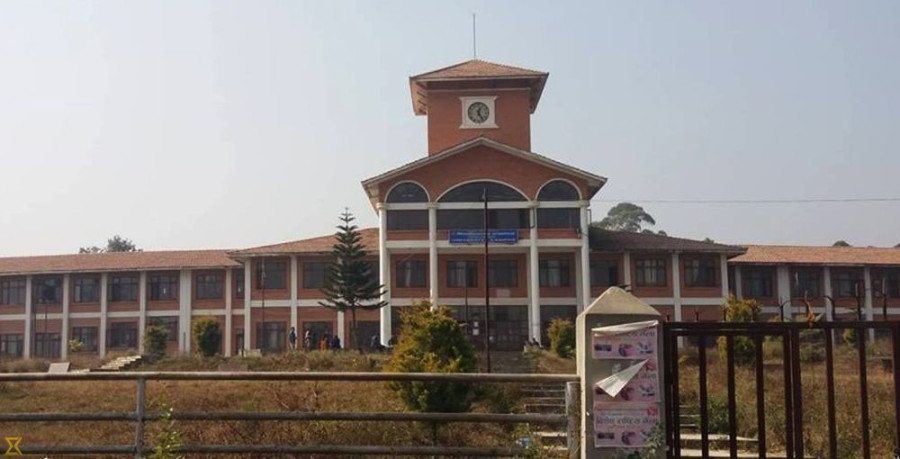National
Ministry directs TU to allocate 75 percent of seats in medical colleges to scholarship students
We want to see the commitments implemented, students say.
Binod Ghimire
The government has committed to allocating 75 percent scholarship seats in the state-funded medical colleges, as envisioned in the National Medical Education Act.
Minister for Education, Science and Technology Giriraj Mani Pokharel, also the ex-officio pro-chancellor of universities, has directed the Tribhuvan University to ensure that 75 percent of the MBBS seats are set aside for scholarship students.
The directive follows continuous student demonstrations putting forth an eight-point charter of demands, including implementation of the Act.
“The government commits to implementing the provision of 75 percent scholarship in line with the Act,” reads the minister’s directive to the Tribhuvan University. The common entrance examinations for all the universities, however, will be conducted from the next academic session, according to the directive.
The entrance test for medical colleges under Tribhuvan University is starting on Saturday, while Kathmandu University is conducting the test in the third week of September. Based on the demands of the students, Pokharel has asked university authorities to regulate college fees right from the time of admission.
As per the directive, the students will submit the vouchers of the money paid to their colleges at the university, which will coordinate with the colleges.
The move, the ministry believes, will stop medical colleges from charging exorbitant fees to the students. If the university administration follows the directive, students will not have to engage in financial dealings with colleges.
Pokharel, in the directive, has also asked the university authorities to publicise the total fee for MBBS, including the registration and examination. He also has asked the colleges to publish the hostel fee and cost of food in a national newspaper.
“It is a good initiative by Pokharel. However, we want to see that implemented,” Anit Sinha, secretary of the students’ struggle committee, told the Post.
The Act was brought to address the agreements with Dr Govinda KC, an orthopaedic surgeon at the Tribhuvan University Teaching Hospital, who has staged several hunger strikes in the past times, calling for an end to malpractices in the country’s medical education sector.
Students had resorted to protests and padlocked the Institute of Medicine under Tribhuvan University and Kathmandu University School of Medical Science, demanding implementation of the Act, mainly the common entrance tests and the scholarship.
While the state-run medical colleges have to provide 75 percent scholarship quota, private medical colleges run with domestic resources need to reserve 10 percent scholarship quota, and those run with foreign investment must reserve 20 percent quota.
The Medical Education Commission has been constituted as per provision in the Act to deal with the issues related to medical education. The commission, however, hasn’t come into a function as the government has yet to appoint the vice-chair who is its executive head.
A recommendation committee led by Umesh Prasad Mainali, chairman of the Public Service Commission, has suggested three names for the post of vice-chair. The prime minister will appoint one of the three individuals recommended by the committee.




 9.7°C Kathmandu
9.7°C Kathmandu














